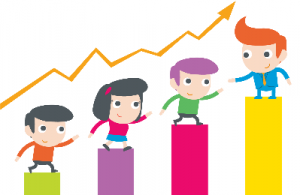Foundation Stage – Nursery and Reception classes
At Higher Failsworth Primary School we believe that our Foundation Stage is crucial to developing firm foundations to be built upon throughout our school journey and beyond.
It is our intent that the children who enter our Foundation Stage develop physically, verbally, emotionally, creatively, intellectually and spiritually whilst embedding a positive attitude to school and learning. We set high expectations throughout all areas of school life and beyond. We believe that all children deserve to be valued as an individual and we are passionate in supporting all children to achieve their full, unique potential.
Our Nursery and Reception classes follow the EYFS curriculum. The Foundation Stage classes are set up in a similar way to give the children lots of familiar experiences. It is designed to build on children’s skills and achievements. The outdoor area for learning is given equal importance in the daily learning experiences. The children are able to choose indoor or outdoor activities.
Development Matters in the Early Years Foundation Stage (EYFS)
We implement the areas of learning within the EYFS curriculum by providing a safe, stimulating environment that allows children to discover, be challenged, consolidate and achieve their very best whilst developing their resilience and independence.
There is a combination of adult-led, teacher taught whole class, group and individual support. Throughout all of these areas of learning and at the heart of the EYFS Curriculum are the ‘Characteristics of Effective Learning’.
We strive to develop these key characteristics of “Playing and Learning”, “Active Learning” and “Thinking Critically” in order to give the children the skills that they will continue to draw upon throughout their development. We get to know our families and children well and use their interests and knowledge to support and inspire our children’s knowledge and understanding of themselves, our local community and beyond. Our learning environments, both inside and outside are adapted to meet the different and developing needs of our children. We are passionate advocates for ensuring all of our children are able to share how they feel and work with them to support any worries or concerns they may have as we fully believe…Happy Children Learn.
Impact
Within our EYFS Curriculum, children are assessed through accurate observations informing future planning and children’s individual next steps in their learning. This enable us to ensure learning is embedded and consistent and that all children continue to make the best possible progress within our EYFS setting.
The impact of our provision can be seen through the positive feedback received by our parents via Class Dojo and at parents’ evenings and at school events.
The Early Years Curriculum
The Early Years Curriculum for Nursery and Reception age children enables practitioners to give children the best possible start to learning and school life. It focuses on encouraging children to learn and develop by playing and exploring, through active learning and creative thinking.
The areas of Learning and Development are made up of
Prime Areas
- Communication & Language Development
- Personal, Social & Emotional Development
- Physical Development
Specific Areas
- Literacy
- Mathematics
- Understanding the World
- Expressive Arts and Design
Communication and Language Development
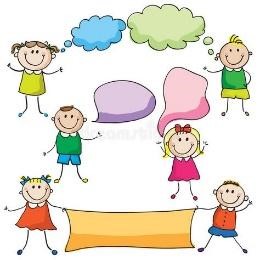
Strong spoken language skills are the foundation of all learning in the EYFS. Regular, high-quality conversations with adults and peers in a language-rich environment support children’s communication and cognitive development. Practitioners build vocabulary by engaging with children’s interests and modelling language.
Communication and Language is divided into two aspects: Listening, Attention and Understanding, and Speaking.
In Nursery, children develop listening and attention skills through stories, songs, and play-based conversations. Practitioner’s support understanding by modelling language, asking questions, and encouraging turn-taking in conversations.
In Reception, children build on these foundations by using more complex sentences, expressing ideas clearly, and following instructions with increasing confidence. Adults extend vocabulary and support speaking skills through storytelling, role-play, and focused group discussions.
Personal, Social and Emotional Development (PSED)
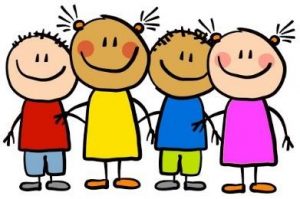
PSED is central to children’s wellbeing and learning. It is key to helping children lead happy, healthy lives and supports all other areas of learning. Through strong, caring relationships with adults, children learn to understand themselves, manage emotions, and build positive relationships with others.
PSED is divided into three aspects; Self-Regulation, Managing-Self and Building Relationships.
In Nursery, children begin to develop self-regulation by recognising and naming their feelings, with adult support, and learning simple strategies to manage them. They are gently guided to follow routines, take turns, wait patiently, and listen to others. Children also grow in independence, learning to manage themselves in everyday tasks such as feeding, toileting, dressing, and tidying up. Through play and daily interactions, they begin to build relationships—learning to share, cooperate, and form secure bonds with familiar adults and peers.
In Reception, children continue to grow in their personal, social and emotional development by building a deeper understanding of their own feelings and learning how to manage them effectively. They develop self-regulation by following rules, managing impulses, and beginning to solve problems calmly and independently. Children gain confidence in managing their own needs, making healthy choices, and showing resilience when faced with challenges. As part of a supportive class community, they build positive relationships, work cooperatively with others, and demonstrate care, empathy, and respect for those around them.
Physical Development
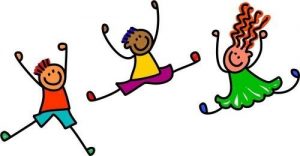
Physical activity plays a key role in children’s overall development and helps lay the foundation for happy, healthy, and active lives. From an early age, children develop their gross and fine motor skills through play and movement. This begins with sensory exploration and activities like crawling, climbing, and tummy time, and gradually builds their strength, coordination, and awareness of their bodies. As they grow, children continue to refine these skills through active play, using tools, and interacting with both objects and adults.
Physical Development is divided into two aspects: Gross Motor and Fine Motor.
In Nursery, children build their gross motor skills through activities like climbing, running, jumping, dancing, and moving in different ways. These experiences help develop coordination, balance, and body strength.
They begin to develop fine motor skills through sensory play, mark-making, using tools like paintbrushes and playdough cutters, and exploring how to handle small objects with control and care.
In Reception, children continue to refine their gross motor skills by moving with more control and confidence during outdoor play, PE sessions, and structured movement activities. They learn to negotiate space, use equipment safely, and develop core strength and stamina.
Their fine motor development is supported through a wide range of activities that strengthen hand control, such as drawing, cutting, threading, and using writing tools. These skills help prepare children for confident and fluent writing.
Literacy
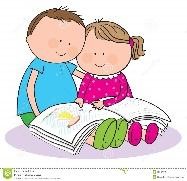
Developing a love of reading from an early age is essential for children’s lifelong learning. Literacy involves three important areas: comprehension, word reading and writing. Language comprehension begins from birth and grows when adults engage children in conversations about the world, share stories and information books, and enjoy rhymes, poems, and songs together.
Word reading skills are introduced later and include learning to decode unfamiliar words and quickly recognise familiar ones. Writing combines learning to spell and form letters with expressing and organising ideas clearly before putting them down on paper.
Literacy development is divided into three aspects: Comprehension, Word Reading and Writing.
In Nursery children begin to develop a love of stories, songs, and rhymes, building their vocabulary and listening skills. They explore books and enjoy sharing stories with adults and peers. Early mark-making helps them start to understand that writing is a way to communicate.
In Reception children build on these skills by learning to recognise letters and sounds through phonics. They begin to decode simple words and develop confidence in reading familiar texts. Writing skills develop as children practise forming letters, spelling basic words, and expressing their ideas in sentences.
Mathematics
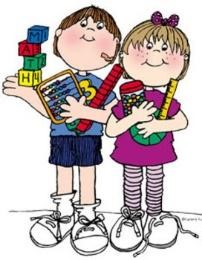
Developing a strong foundation in number is essential for children to succeed in mathematics. In the Early Years, children learn to count confidently and gain a deep understanding of numbers up to 10. They explore the relationships between these numbers and recognise patterns, which helps build the key skills needed for more complex maths later on. Through fun, hands-on activities, children develop their problem-solving, reasoning, and early calculation abilities in a supportive and engaging environment.
Mathematics is divided in two aspects: Number and Numerical Patterns.
In Nursery children begin to explore numbers through counting songs, games, and everyday activities. They develop early number recognition and start to notice simple patterns and shapes in their environment. Practical experiences help them understand size, quantity, and position.
In Reception children build on these skills by confidently counting, comparing, and ordering numbers up to 10 and beyond. They explore number bonds, simple addition and subtraction, and recognise more complex patterns. Children also develop their understanding of shapes, measures, and spatial awareness through hands-on activities and problem-solving tasks.
Understanding the World
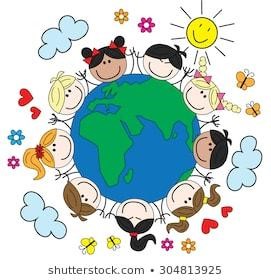
Understanding the world helps children make sense of their surroundings and community. Through a variety of experiences—such as visits to the forest, libraries, farms, and learning about people who play important roles in society like police officers and nurses—children expand their knowledge and awareness. Listening to a wide range of stories, poems, and non-fiction books also supports their understanding of the diverse cultural, social, technological, and natural world around them. These experiences not only build important knowledge but also help develop vocabulary, which is essential for later reading and comprehension.
Understanding the world is divided into three aspects: Past and Present, People, Cultures and Community and The Natural World.
In Nursery children begin to explore their immediate environment through sensory experiences and simple observations. They learn about different people, places, and the natural world by exploring outdoors, sharing stories, and engaging in activities that spark curiosity about the world around them.
In Reception children deepen their understanding by investigating their local community and wider world. They learn about different cultures, jobs, and environments through visits, discussions, and a variety of books. They also explore technology and the natural world, developing important vocabulary and knowledge that support their learning across all areas.
Expressive Arts and Design
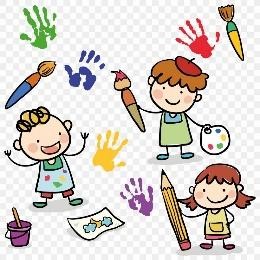
Expressive Arts and Design nurtures children’s imagination, creativity, and cultural awareness. Regular opportunities to explore a wide range of materials and media help children develop their self-expression and communication skills. Experiencing and participating in diverse artistic activities supports their understanding, builds vocabulary, and encourages them to interpret and appreciate the world around them.
In Nursery children explore a variety of materials and media through sensory play, painting, music, and movement. They begin to express their ideas and feelings using colours, shapes, sounds, and simple role-play, building their creativity and confidence.
In Reception children develop their artistic skills by experimenting with different techniques and tools, creating more detailed artwork and imaginative stories. They engage in music, dance, and drama, learning to communicate their thoughts and emotions while appreciating the work of others.
Assessment
Assessment plays an important part in helping parents, carers and teachers to recognise children’s progress, understand their needs, and to plan activities and support. Ongoing assessment (also known as formative assessment) is an integral part of the learning and development process. It involves teachers observing children to understand their level of achievement, interests and learning styles, and to then shape learning experiences for each child reflecting those observations. In their interactions with children, teachers respond to their own day-to-day observations about children’s progress and observations that parents and carers share.
Parents and/or carers will be kept up-to-date with their child’s progress and development. Teachers will address any learning and development needs in partnership with parents and/or carers, and any relevant professionals.
In the final term of the year in which the child reaches age five, (and no later than 30th June), the EYFS Profile will be completed for each child. The Profile provides parents and carers, practitioners and teachers with a well-rounded picture of a child’s knowledge, understanding and abilities, their progress against expected levels, and their readiness for Year 1.
Each child’s level of development must be assessed against the early learning goals. Teachers will indicate whether children are meeting expected levels of development, or if they are exceeding expected levels, or not yet reaching expected levels (‘emerging’). This is the EYFS Profile.
The profile will be completed for all children, including those with special educational needs or disabilities. Reasonable adjustments to the assessment process for children with special educational needs and disabilities will be made as appropriate. School will consider whether they may need to seek specialist assistance to help with this. Children will have differing levels of skills and abilities across the Profile and it is important that there is a full assessment of all areas of their development, to inform plans for future activities and to identify any additional support needs.
